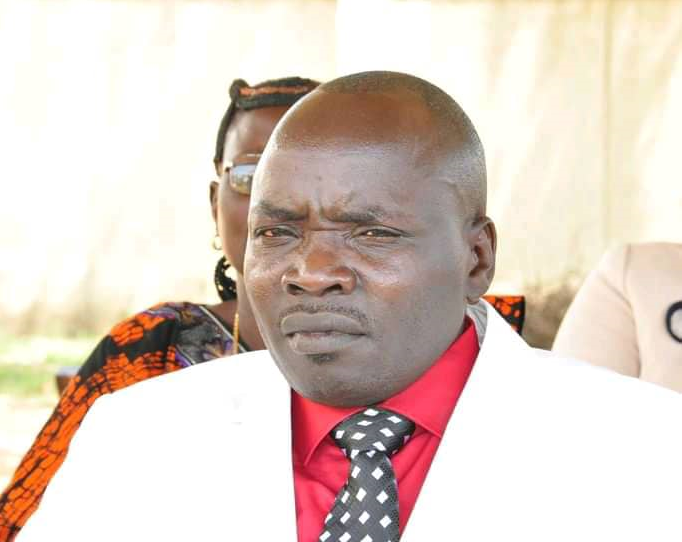You are here: Home | Humanitarian | News | Activist blames Upper Nile conflict on leadership vacuum

John Lwong Oyiech, Chairperson of Upper Nile Civil Society Network. (Photo: Courtesy).
A civil society activist in Upper Nile State has slammed the governor and his deputy for allegedly governing from Juba, and said their absence is to blame for the inadequate response to violence in the restive region.
John Lwong, Chairperson of the state civil society network said he is concerned with the recent clashes in Malakal, Panyikang, and Fashoda counties.
“Yes, the government is not doing anything at all in this. You see now Pakang Payam within Panyikang County, it is controlled by the SPLA (SSPDF),” he told Eye Radio.
“But they let the fighters to enter into the territory, leaving the civilians to be killed when they are there and they are not responding and we are also seeing the leadership in Upper Nile because the government of Upper Nile is not there now.”
Last weekend, 17 people including elderly were reportedly attacked and killed in their houses by an armed militia group.
The clashes involving armed youth as well as military factions, have displaced tens of thousands of people across the state and the neighboring Jonglei State.
Most of the victims have sought refuge at the Protection of Civilians Site in the state capital, Malakal.
Speaking to Eye Radio, activist Lwong said a leadership vacuum created by the absence of Governor Budhok Anyang and his deputy from the capital, is to blame for the worsening security and humanitarian situation.
“The governor is not there in the state, the deputy governor is not in the state. So, this leadership vacuum makes even a weak point for the government in the state to respond.”
Lwong appealed to the government to quell the tensions to enable aid agencies deliver assistance to the affected populations.
“We are asking the government to stand its ground and control this fight because without stopping this fighting, this kind of assistance that we are talking about will be meaningless.’
“Like what happened in Adidiang, the humanitarian responded to the displaced in Adidiang but they were attacked again and those resources just gone. So, it is just meaningless. It is the government to stop this fighting and make the humanitarian assistance viable to the community”.
Responding to the accusations, David Nyang, the state Minister of Parliamentary Affairs and the acting governor refuted the ‘leadership vacuum’ allegations.
“I think the word leadership vacuum, which has been linked to the conflict in Upper Nile is inappropriate,” he told Eye Radio.
“It could be true that the governor and his deputy are in Juba doing other duties but first of all, it is not my first time to act as governor. And if you recall, the conflict started when the governor and deputy governor were here themselves.”
The acting governor insists that there is an effective leadership in the state, despite the absence of the governor and his deputy.
“As a matter of facts, if someone has been following the media, they would have realized that there is an effective leadership in the state, because we responded and addressed the problem and we responded to the crisis, so this has nothing to do with leadership vacuum.”
Meanwhile, Major General Lul Ruai Koang, the Spokesperson of South Sudan People’s Defense Forces Spokesperson dismissed allegations that the army allowed civilians to fight themselves.
“You know these factions have enlisted the support of civilians and they have been fighting along their regular fighters.”
“It is ridiculous that we have been accused of having allowed them to go and fight. There are civilians that are fighting along the rival factions of SPLA-IO.”
Support Eye Radio, the first independent radio broadcaster of news, information & entertainment in South Sudan.
Make a monthly or a one off contribution.
Copyright 2024. All rights reserved. Eye Radio is a product of Eye Media Limited.